Bricklayers ‘Weaving’ Material in Innovative College Design
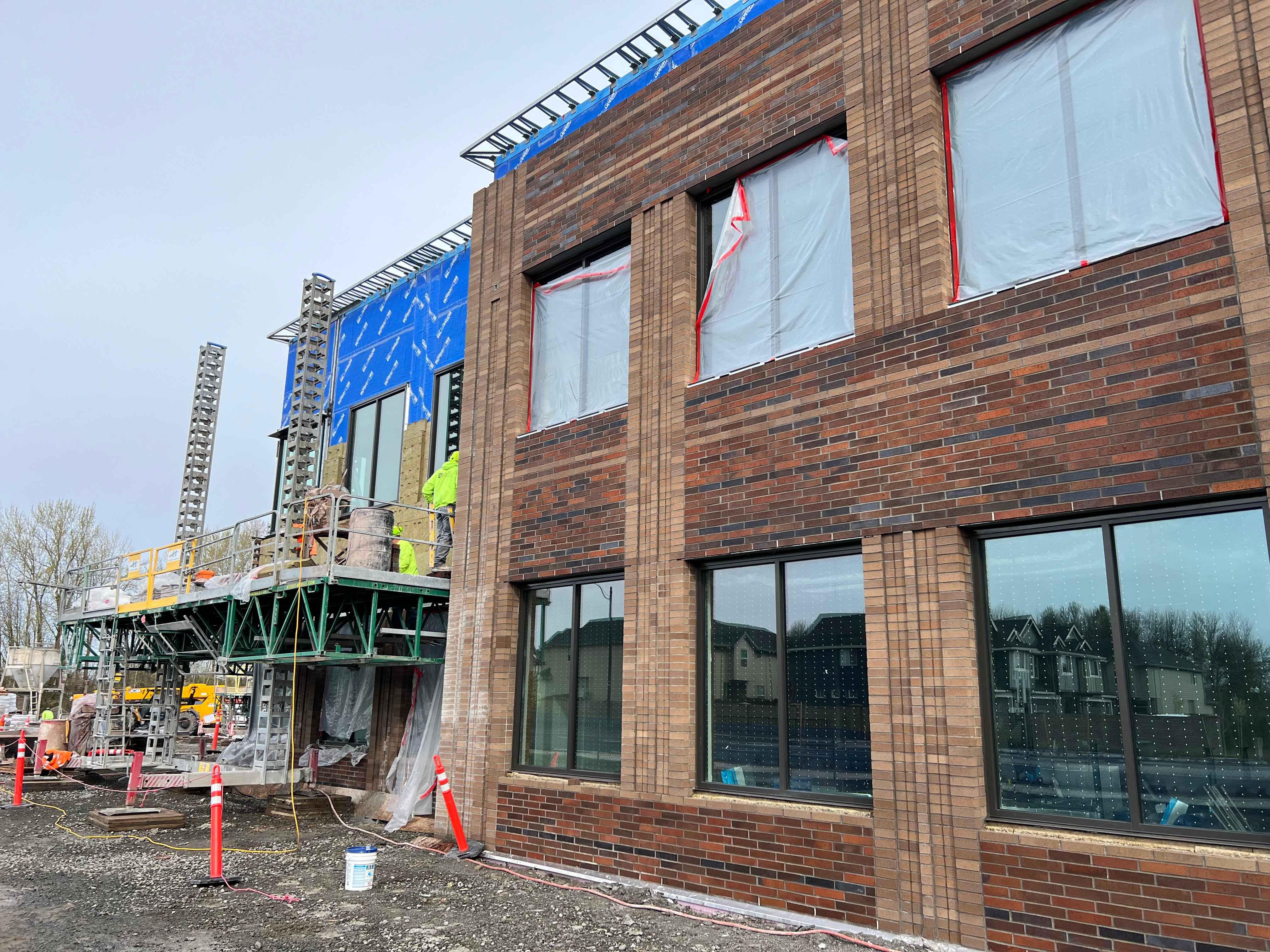 Ridgefield, Washington, 20 miles north of Portland, is set to become a new center of advanced manufacturing education with the construction of a new satellite location of Clark College. The location is planned to hold its first classes in Fall 2025 in a 49,000 square foot building using intricate brickwork and BAC ingenuity to honor a Native American skilled craft and its people.
Ridgefield, Washington, 20 miles north of Portland, is set to become a new center of advanced manufacturing education with the construction of a new satellite location of Clark College. The location is planned to hold its first classes in Fall 2025 in a 49,000 square foot building using intricate brickwork and BAC ingenuity to honor a Native American skilled craft and its people.
“This building honors the past through its homage to the traditional basket-weaving of local Native Americans, while contributing to the development of a skilled workforce in advanced manufacturing trades,” said BAC Local 1 Oregon/Washington/ Idaho/Montana President Shawn Lenczowski. “And it’s the skilled work of BAC Local 1 members that makes that connection visible for all to see.”
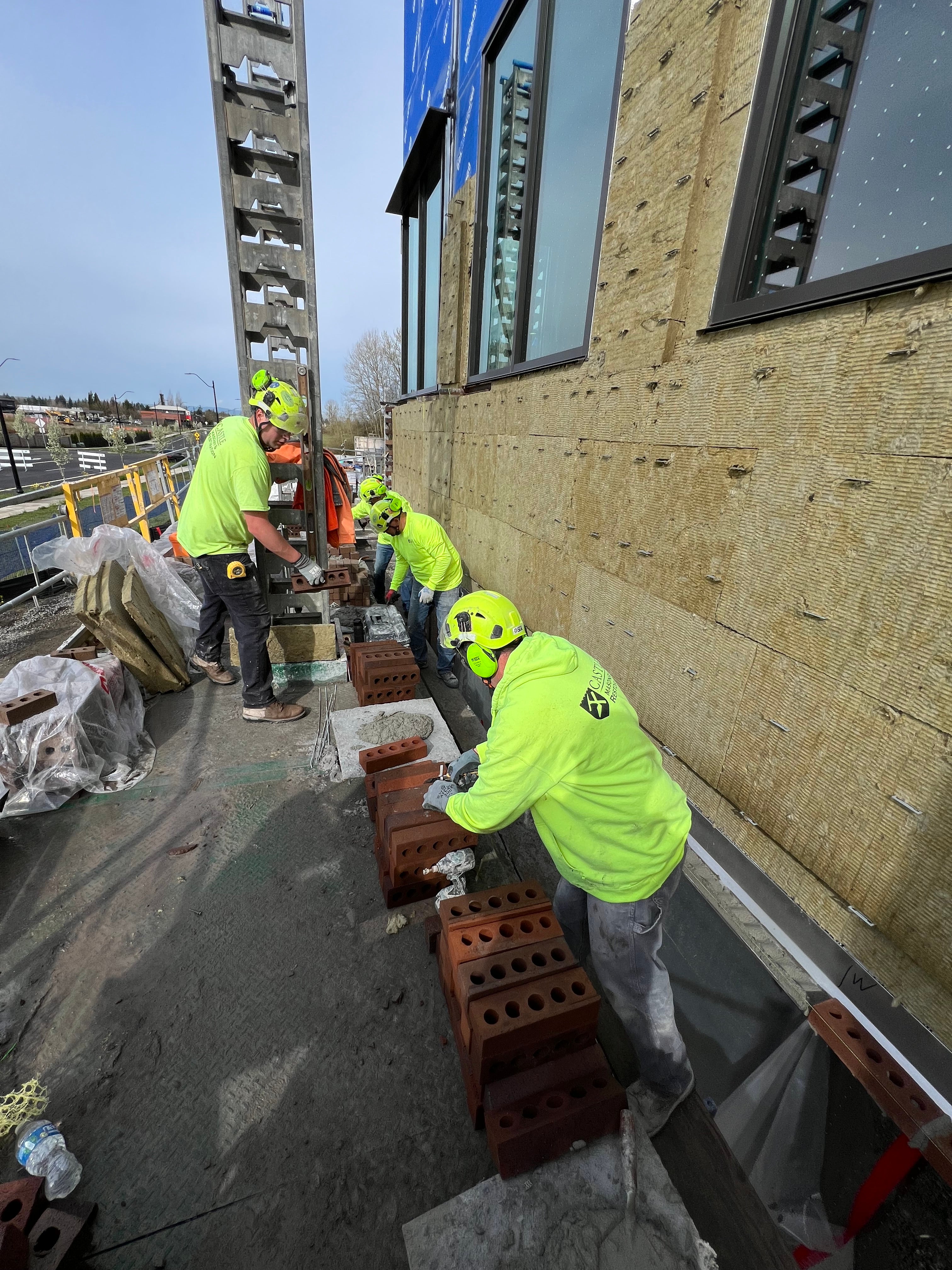
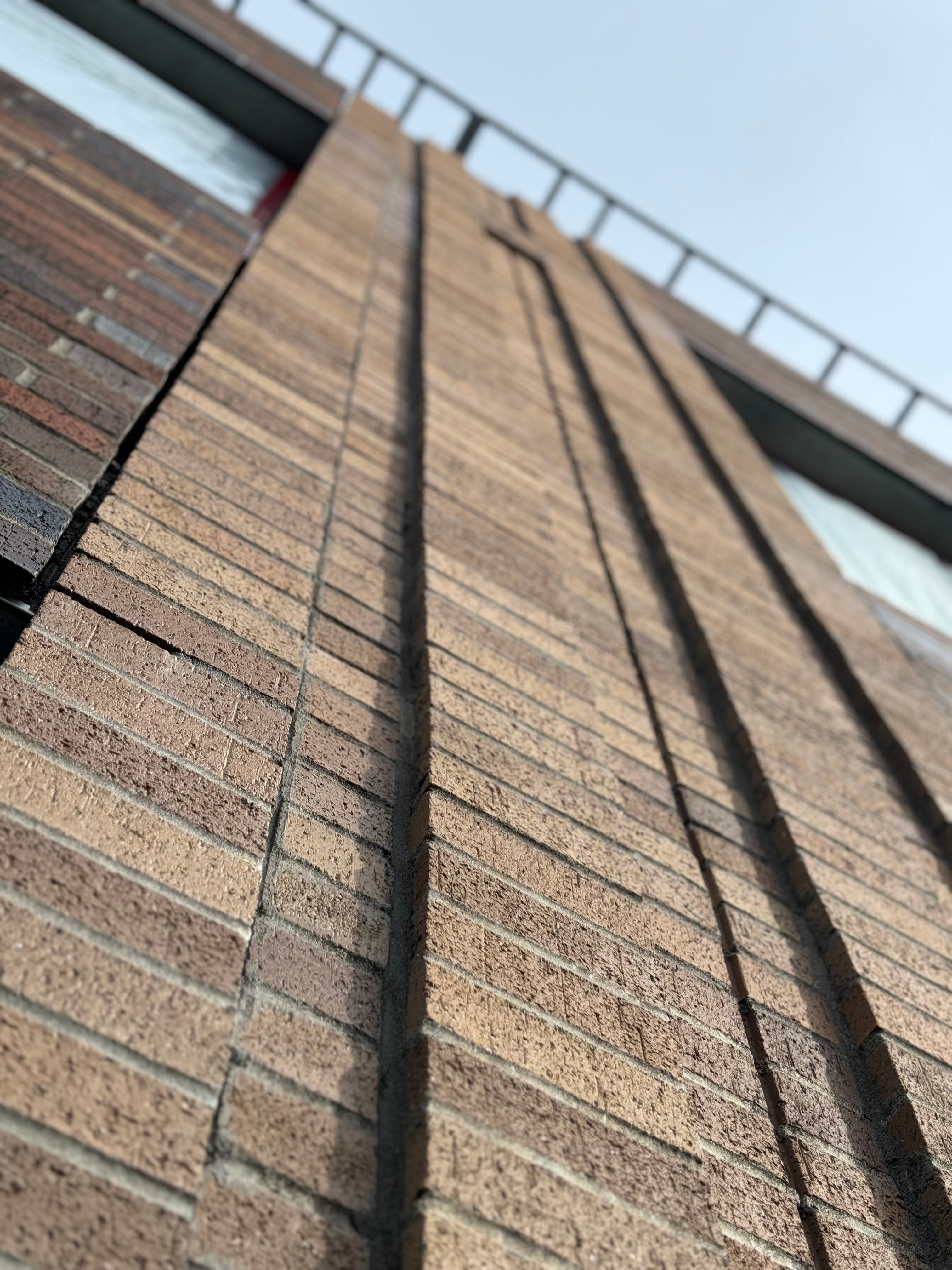 Robert Ray, owner of Castle Masonry and himself a 23-year BAC member, noted that “we fought the weather a little bit. We fought wet material obviously, being in the Pacific Northwest,” but above all he emphasized the challenge posed by the patterns wrapping around the large building.
Robert Ray, owner of Castle Masonry and himself a 23-year BAC member, noted that “we fought the weather a little bit. We fought wet material obviously, being in the Pacific Northwest,” but above all he emphasized the challenge posed by the patterns wrapping around the large building.
“When it comes to patterns like that,” he explained, “you really have to pay attention to detail, because they tie in to each other around the building, so if you make a mistake, basically you have to tear it all down, there’s no way to fix it.”
Those patterns, Ray said, included, “insets and outsets and stack bond, and corbel-in and corbel-out masonry. It has a pattern involving different colors which is kind of unique — different courses are different colors.”
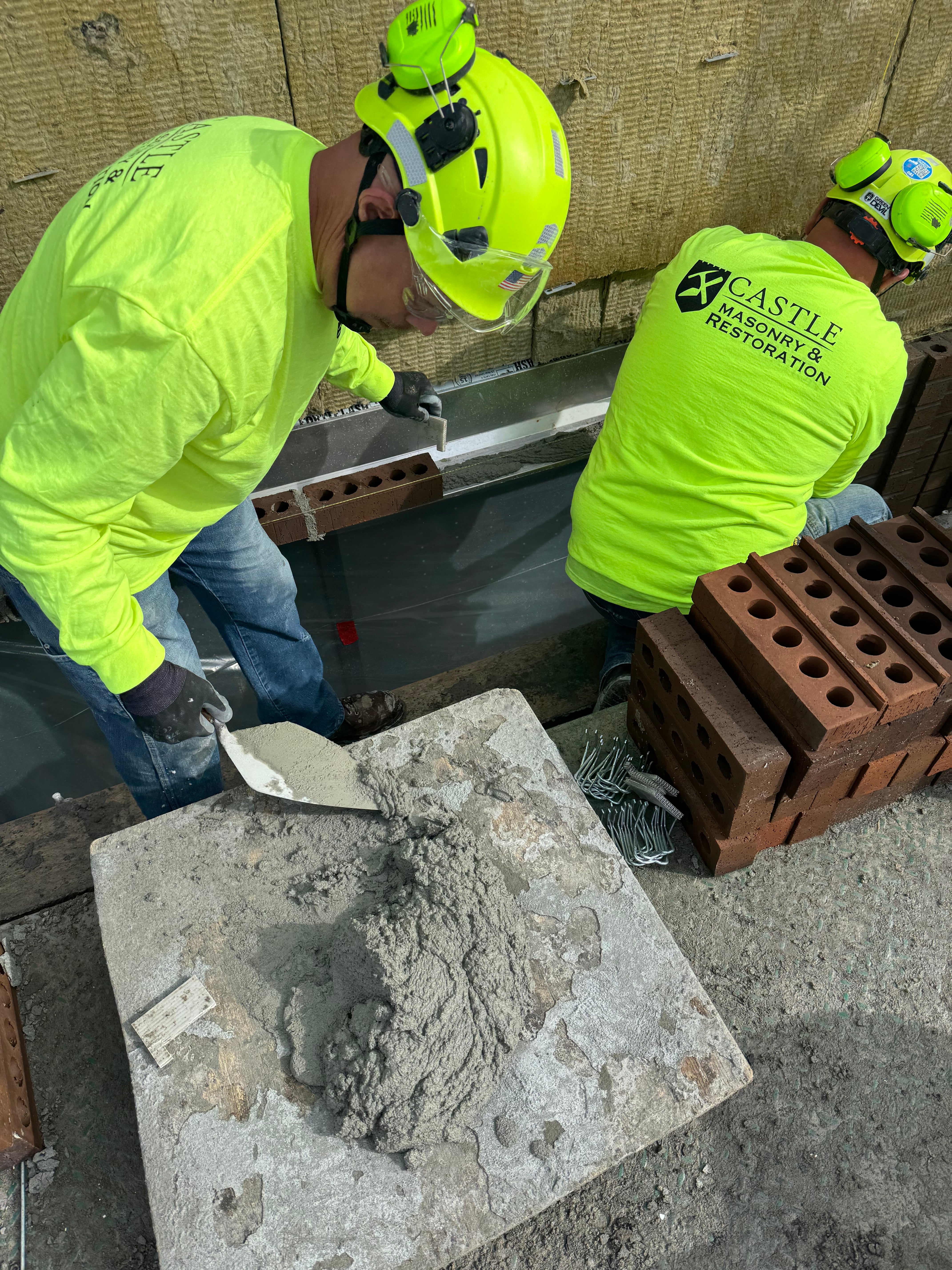
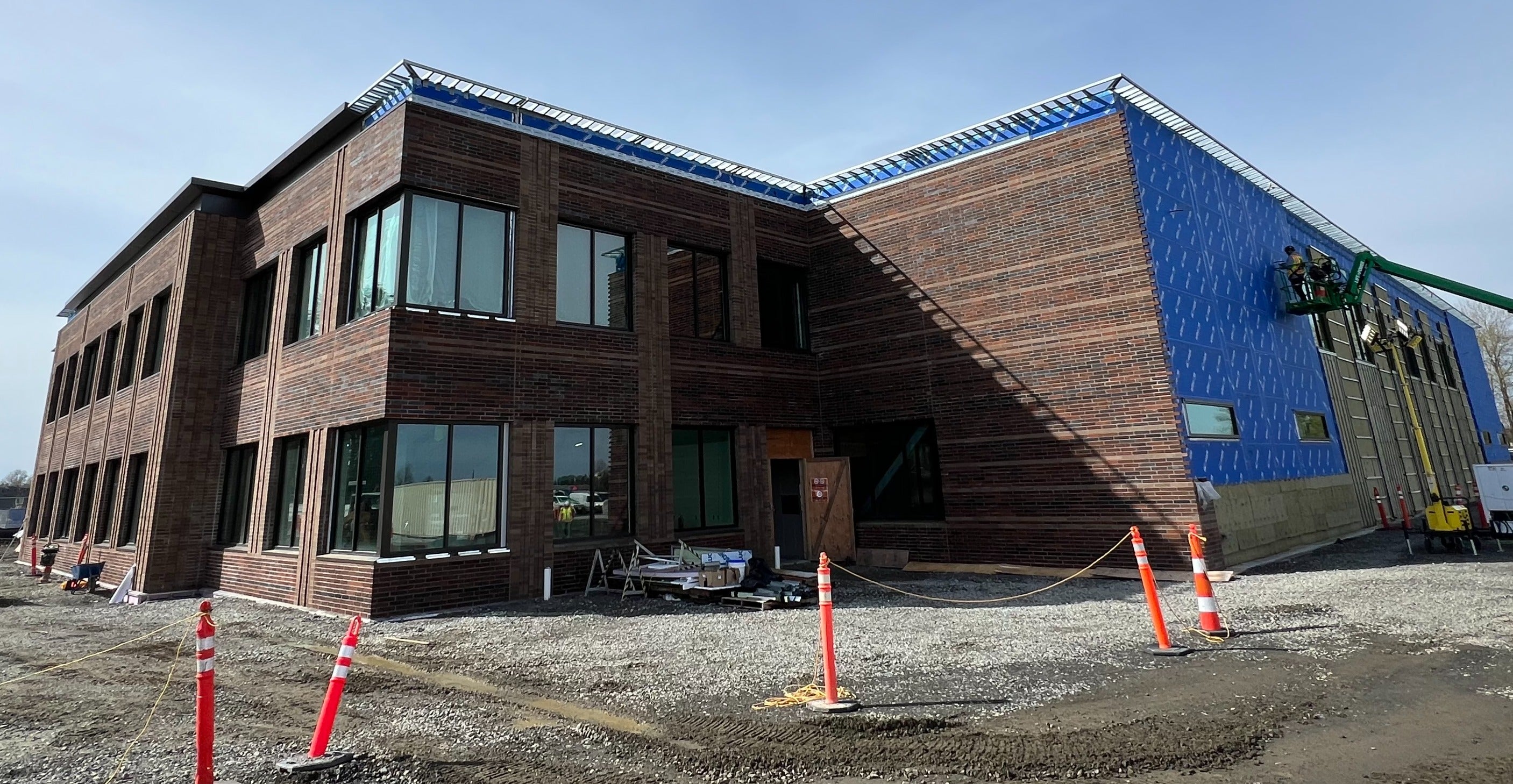
WOVEN BRICK
Castle Masonry reported nearly 5,000 hours of BAC labor on the job, involving 17 BAC members. They put in 14,950 square feet of brick veneer, using Forest Blend and Mountain Blend red field brick, Midnight Sky and NW Stout black brick, and Teal Brown brick in three sizes.
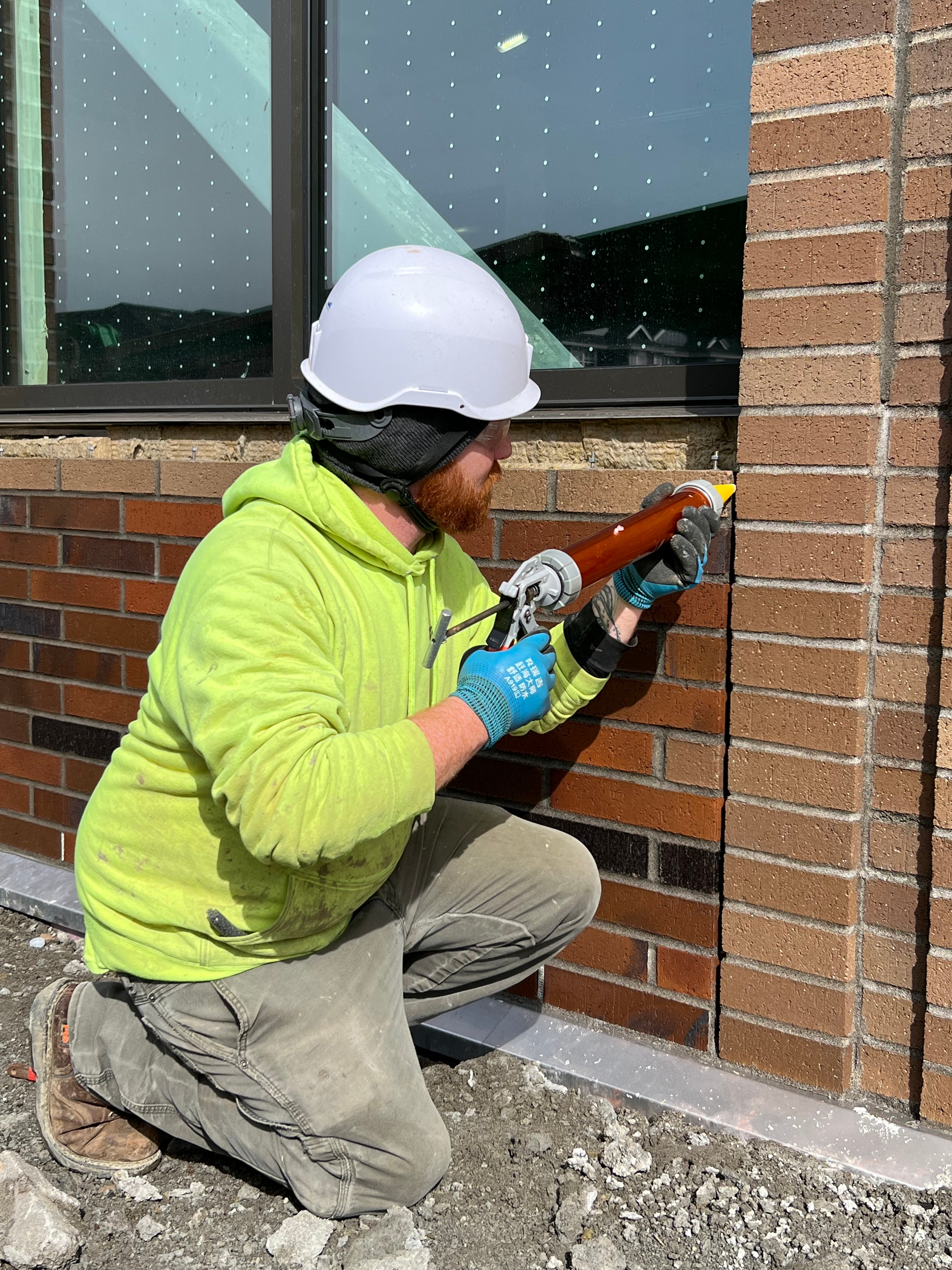
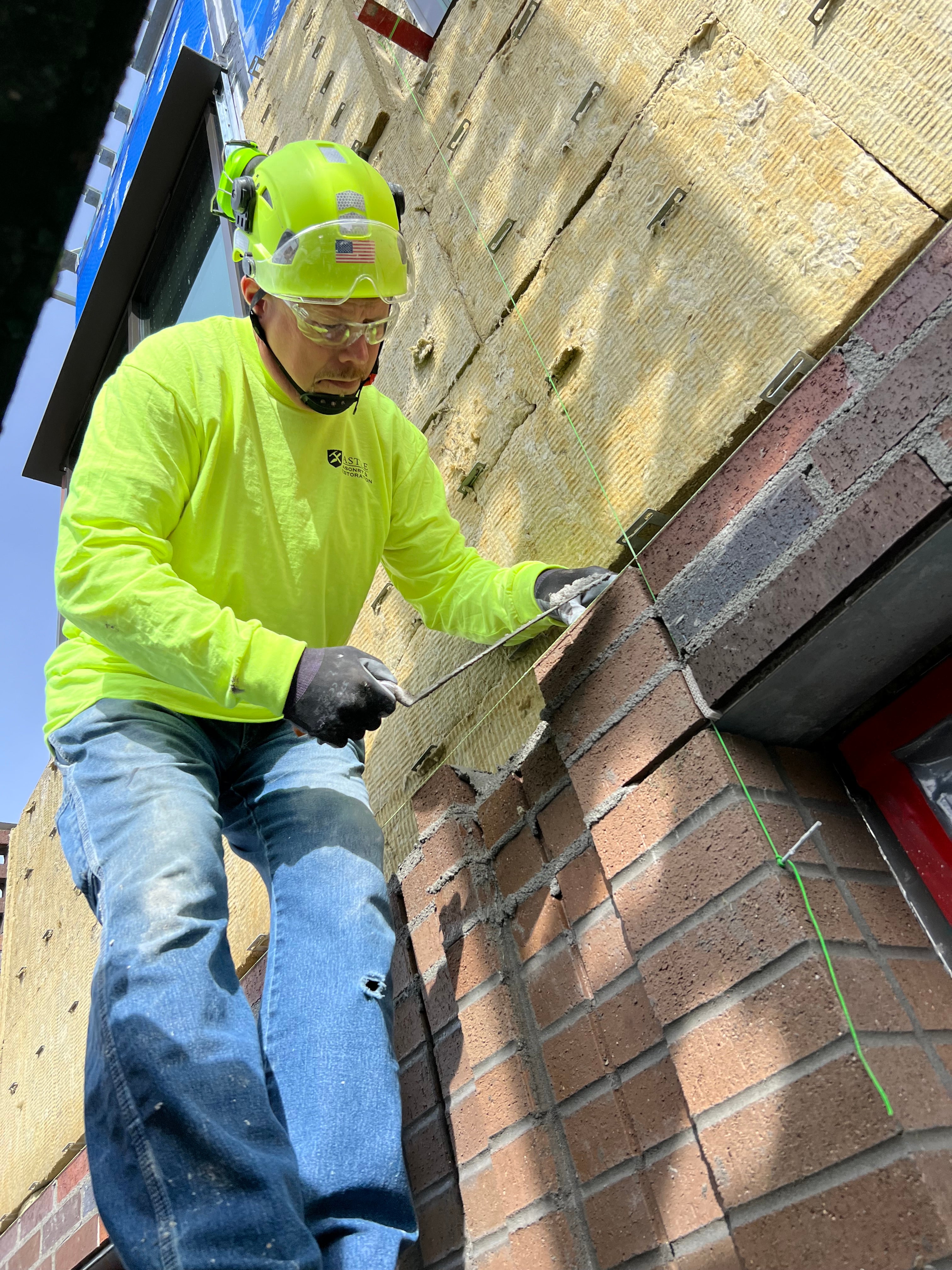
Additionally, “we were in charge of installing all the wall ties and insulation for our scope of the building,” said foreman Nick Zorn, a 23-year BAC member. “We set up our Hydro Mobile scaffold around the project and hopscotched it around the building as we went, and then, of course, installed all the brick veneer.”
Zorn said the project was an unusual challenge that included types of detail work that, though he had been trained in them, he had not encountered on the job in his decades as a BAC member. His crew created special forms to “make sure that the recesses of the brick were uniform all the way up.”
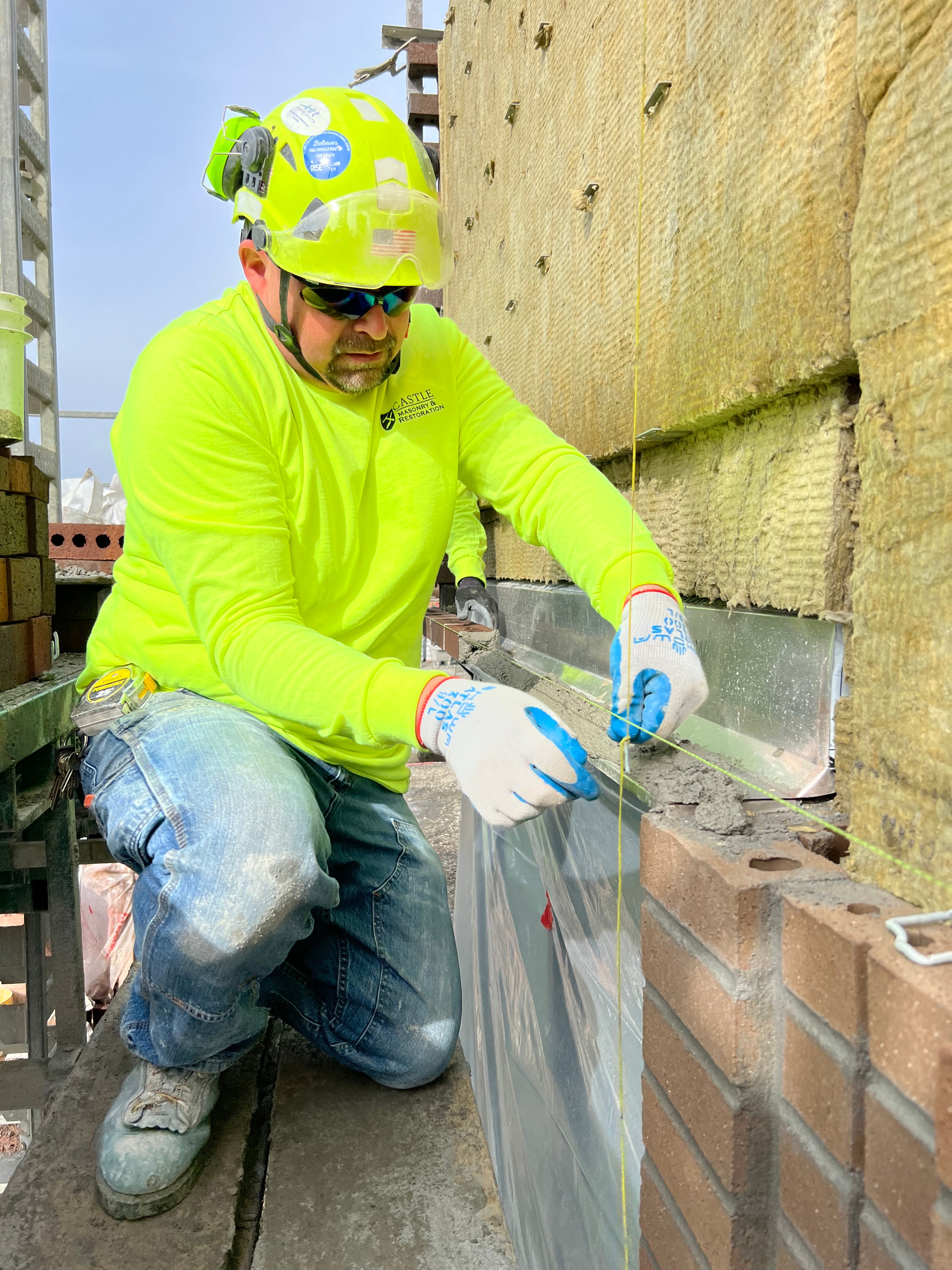
Matthew Rogers, a BAC apprentice since 2023, found the intricacy of the brick pattern “definitely a new experience.” Another new experience was his role with a group of apprentices, “going ahead of the journey masons and prepping everything. Putting on the wall ties and insulation so that when the masons were finished with one section, they could just hop over to the next Hydro and continue laying brick.” Rogers said that while he had learned these skills in class, this was a valuable on-the-job learning experience.
Both Zorn, the foreman, and Rogers, the apprentice, highlighted the involvement of company owner and BAC member Ray.
BAC MEMBER NOW SIGNATORY OWNER
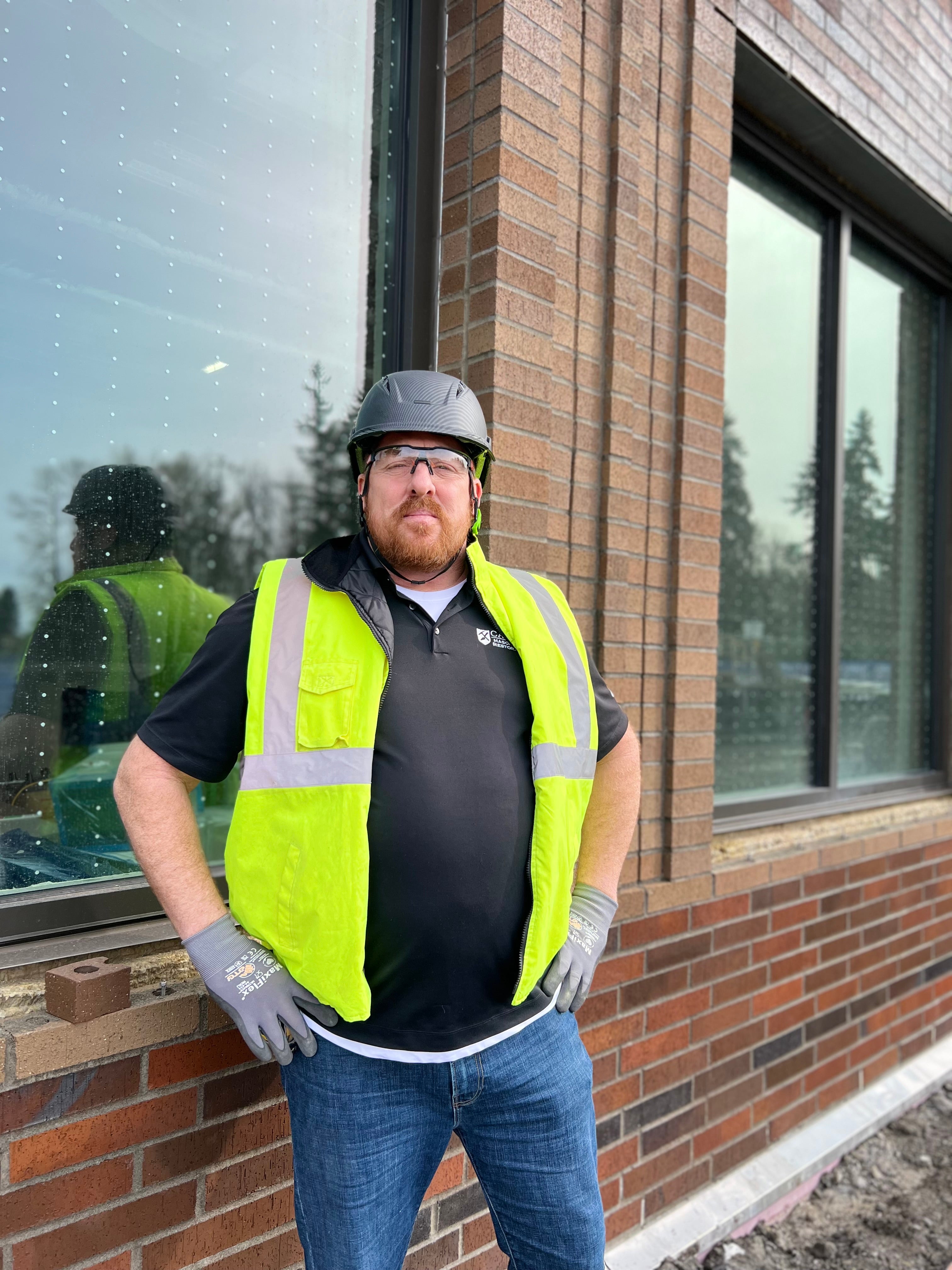
“Robert’s the kind of guy who isn’t afraid to get his hands dirty,” said Zorn, who has known Ray since they were apprentices. “He even came out on that project and laid some brick with us at the beginning, and I can’t think of one other owner of a masonry business that will still use their tools. Robert’s a hands-on guy, and he likes being a part of it. It’s nice working for someone like him who’s been through everything we’ve been through, as far as the hardships. Because it’s not necessarily the easiest job.”
Rogers, too, pointed to Ray’s direct involvement “out there laying brick with us.” He added, Ray is “fully invested, which is really cool.”
For his part, Ray expressed confidence in his BAC employees.
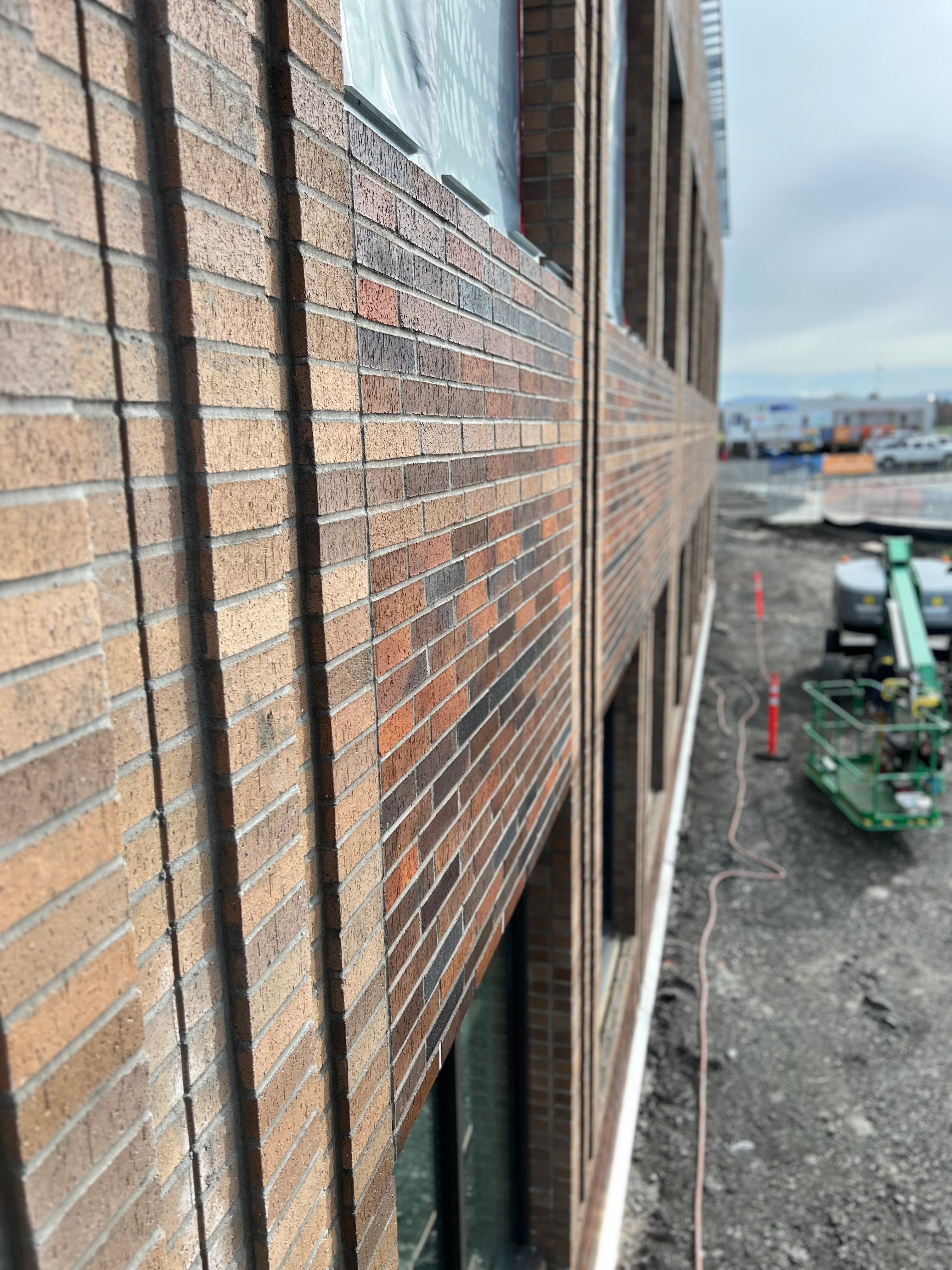 “There’s a huge advantage to having a union shop as far as workers go. The skill level of the workers is unmatched, as they’ve done apprenticeships,” he said. “I always know what I’m getting. I don’t have to hire random people off the street. And it’s great to have my journeymen teaching our younger apprentices the trade.”
“There’s a huge advantage to having a union shop as far as workers go. The skill level of the workers is unmatched, as they’ve done apprenticeships,” he said. “I always know what I’m getting. I don’t have to hire random people off the street. And it’s great to have my journeymen teaching our younger apprentices the trade.”
“I know the training center does a lot of good for the apprentices, but they learn so much on-site, working with the actual journeymen, and it was the same when I was an apprentice,” Ray continued, talking about his own experience. “I learned from some really experienced, really good masons and it’s put me in the position I’m in right now.”
“We’re thrilled to work with a longtime BAC member as he builds his own business and takes on major projects like the Clark College expansion,” Lenczowski said. “Robert Ray’s success with Castle Masonry is a reminder that BAC members have many ways to build careers, from running work, to working with the union, to starting their own companies.”
